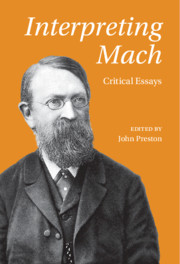3 results
13 - The Case for Mach’s Neutral Monism
-
-
- Book:
- Interpreting Mach
- Published online:
- 05 March 2021
- Print publication:
- 18 March 2021, pp 258-279
-
- Chapter
- Export citation
12 - Phenomenalism, or Neutral Monism, in Mach’s Analysis of Sensations?
-
-
- Book:
- Interpreting Mach
- Published online:
- 05 March 2021
- Print publication:
- 18 March 2021, pp 235-257
-
- Chapter
- Export citation

Interpreting Mach
- Critical Essays
-
- Published online:
- 05 March 2021
- Print publication:
- 18 March 2021

